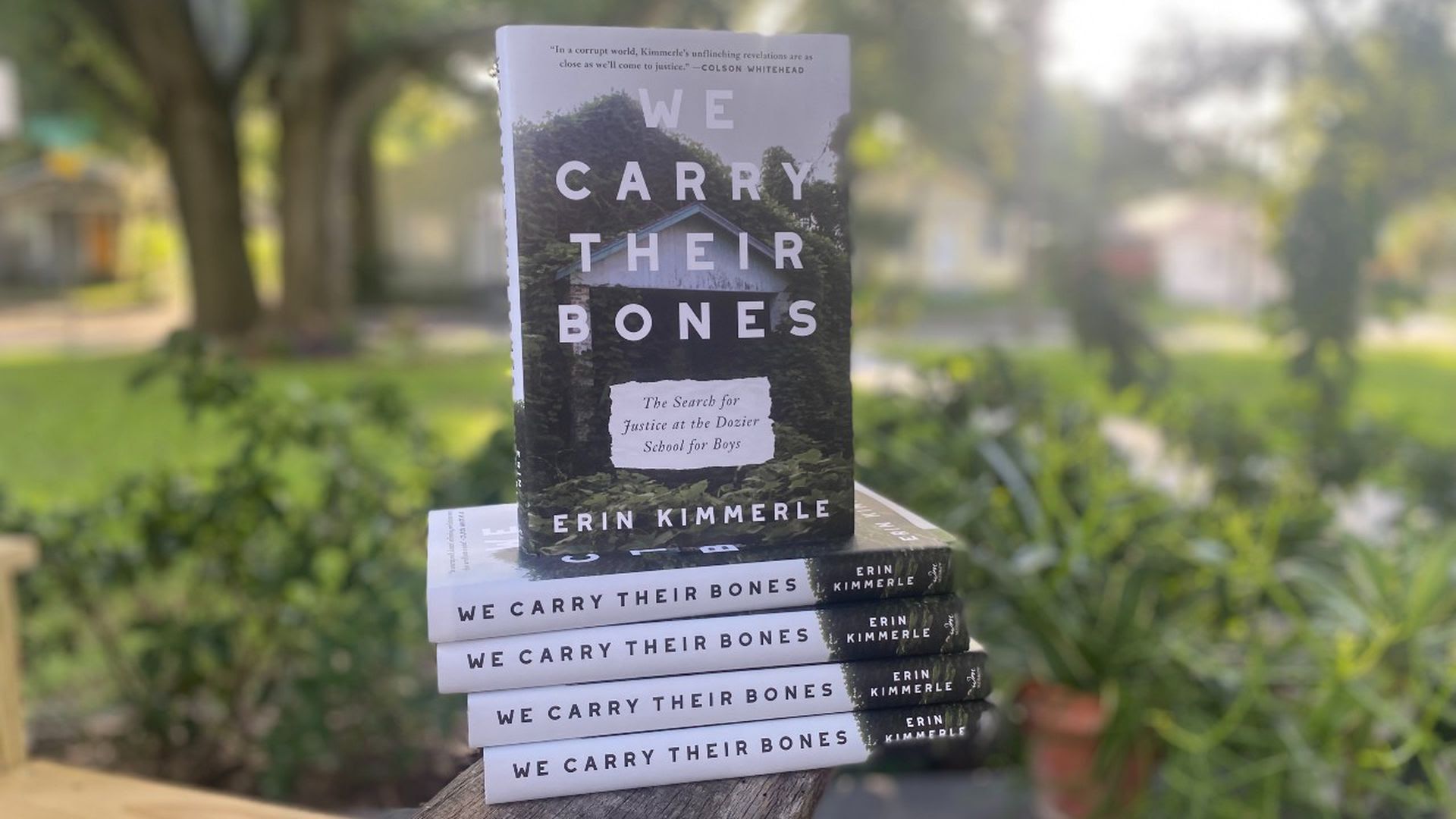Book details story of uncovering Dozier School for Boys graves
Add Axios as your preferred source to
see more of our stories on Google.

Photo: Ben Montgomery/Axios
A new book from a forensic anthropologist who led the yearslong investigation into Florida's notorious Dozier School for Boys publishes Tuesday.
Driving the news: "We Carry Their Bones" is USF associate professor Erin Kimmerle's story of the decade she spent trying to account for a century of abuse, neglect and killings at the state's oldest reform school, in the Panhandle town of Marianna.
- Notably, the school has garnered attention for having informed Colson Whitehead's Pulitzer Prize-winning novel "The Nickel Boys."
- In February, Axios reported on her discovery of evidence of 45 unmarked and forgotten or abandoned cemeteries of mostly Black residents in and around Tampa.
Why it matters: Even with the intense international interest in the case, Kimmerle's personal story — which involves sacrifice, stress, and remarkable courage — hasn't yet been fully told.
- She learned about the Dozier school from newspaper stories a decade ago, when questions were raised about a small graveyard on campus.
- She and colleagues used ground-penetrating radar to map the cemetery and found 51 sets of remains buried in 55 graves, nearly twice the number school records showed were buried on campus.
- She met resistance from judges, politicians and locals, but eventually earned the right to excavate the burials, identify boys, and reunite them with their families.
What they're saying: "In a corrupt world, her unflinching revelations are as close as we'll come to justice," said Whitehead in a cover blurb.
Disclosure: Ben Montgomery, who covered the Dozier school for the St. Petersburg Times, helped Kimmerle write the book.
